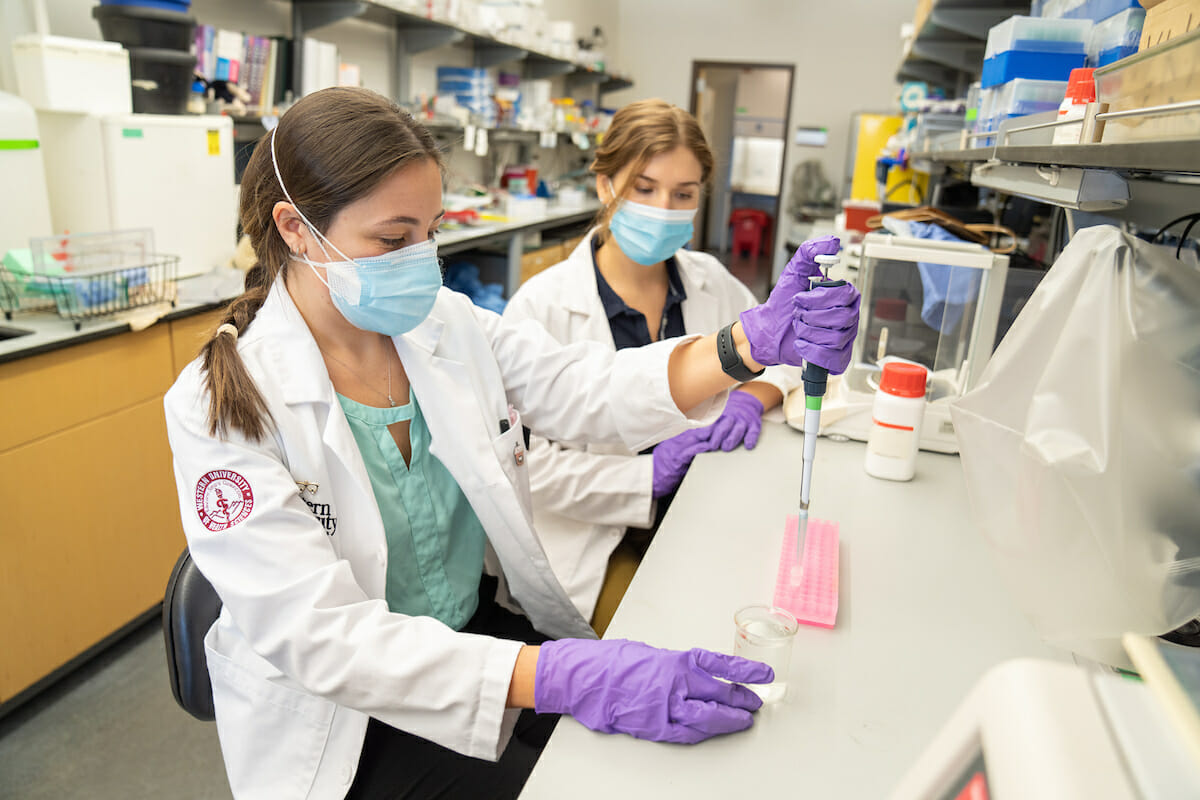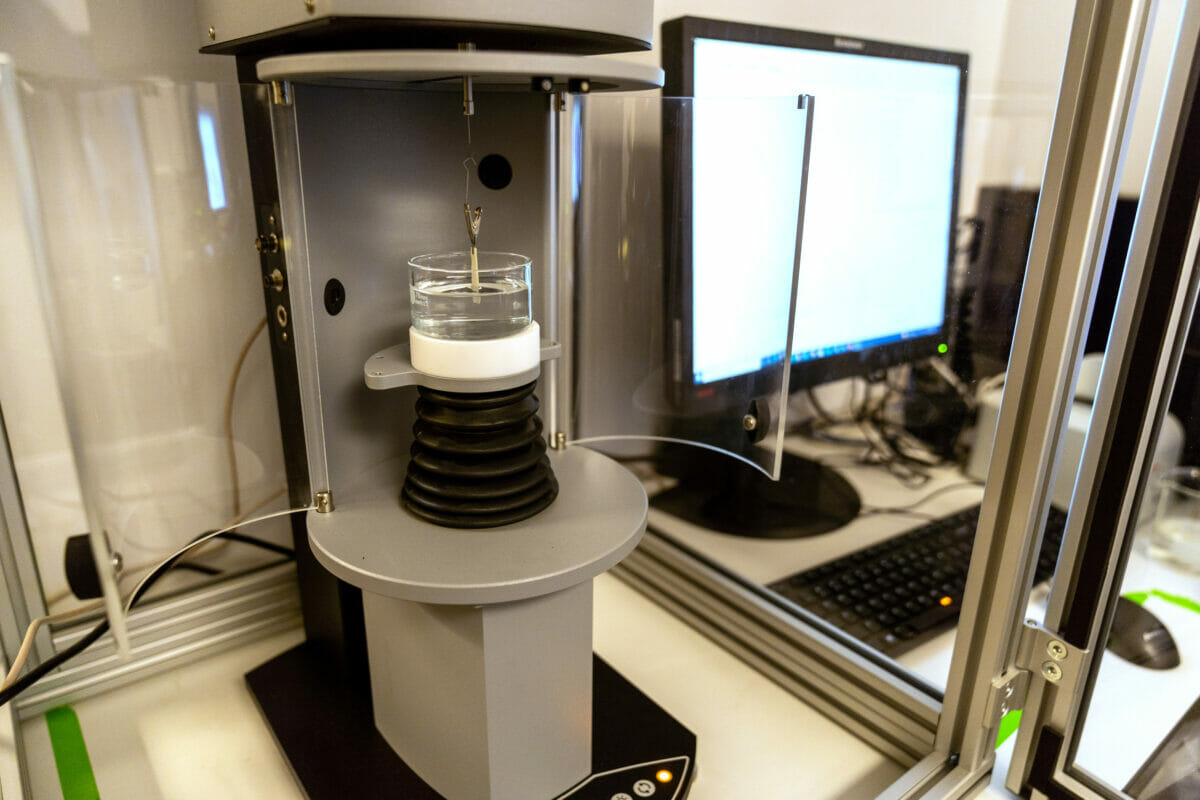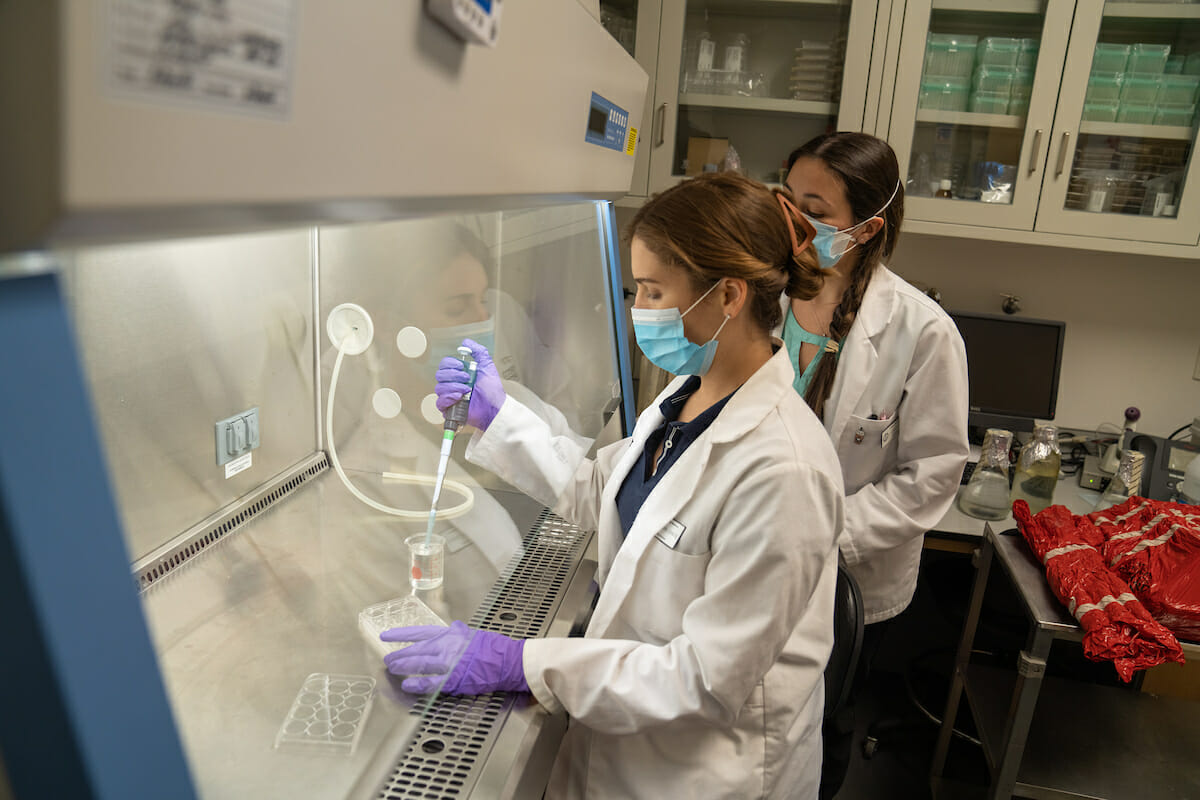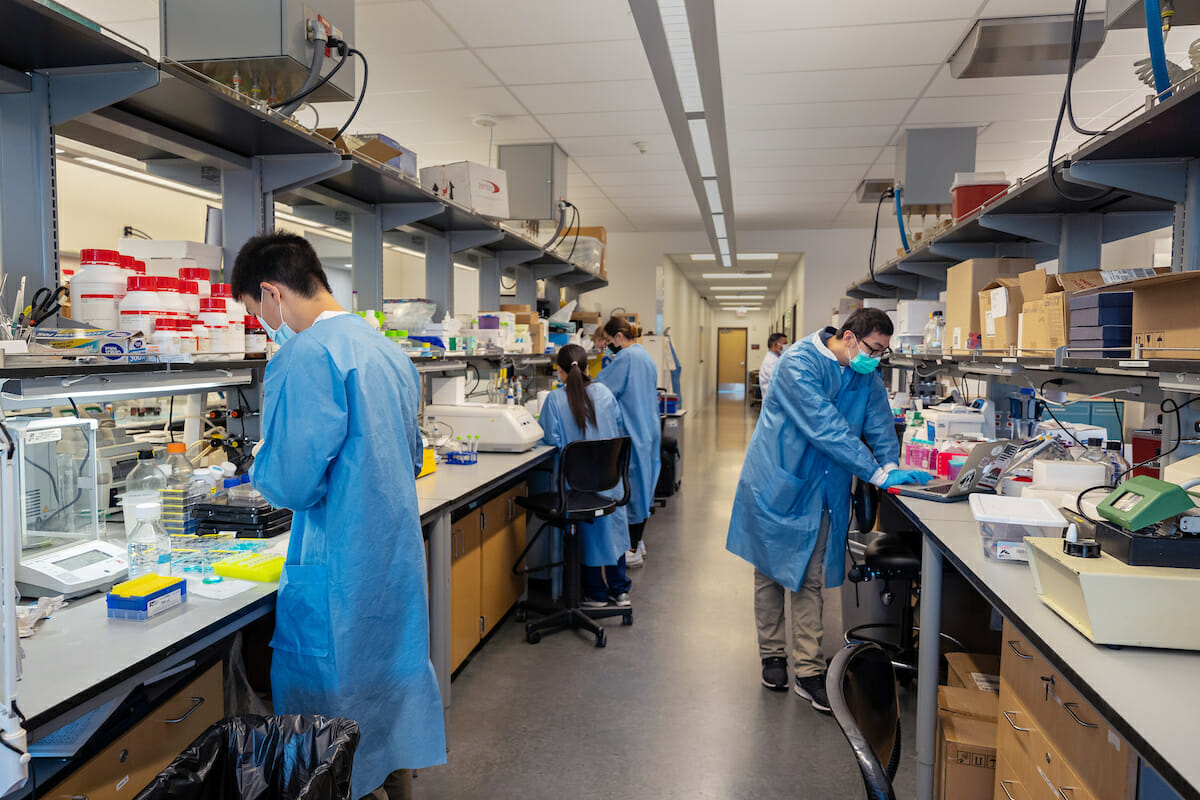
Research
Welcome to the Exciting World of Research!
WesternU CDM faculty members are conducting a wide variety of research, ranging from assessment of curricular and community outreach programs to biomedical studies on disease processes and treatments. CDM faculty members also collaborate with colleagues from other WesternU colleges, as well as other national and international researchers. Faculty work side-by-side with students in state-of-the-art research facilities to advance knowledge that will improve the lives of patients in our community and around the world.

Area of Research Focus
Oral Manifestations of Adverse Drug Reactions
Inflammation and Disease
Inflammation is a major contributor to many oral and systemic disease processes. Periodontitis, diabetes mellitus and even head and neck cancer have been linked to inflammation. Western U CDM researchers explore molecular mechanisms that regulate inflammation and look for innovative and non-invasive ways to mediate those processes using two different approaches. The first explores the effects of plant or fungal derived components on growth, metabolism and cell signaling of oral tumor cells in culture. The second uses light energy to activate anti-inflammatory responses in tumor cells in culture, wound healing models and tumor xenografts.
Oral Manifestations of Adverse Drug Reactions
Three research areas on this topic are currently under investigation by CDM researchers.
- First, medication-related osteonecrosis of the jaw (MRONJ) is a rare but serious adverse reaction to drugs that primarily target the reduction of bone resorption or blood vessel growth. Patients with MRONJ have regions of necrotic bone that cause significant morbidity and are difficult to treat. WesternU CDM researchers are studying the molecular mechanisms responsible for the development of MRONJ as well as biomarkers that may predict which patients are at risk.
- A second area of investigation concerns the chemotherapy drugs used commonly in the treatment of basal cell carcinoma which can often cause loss of taste. Growth factor signaling pathways that are integral to taste bud development are inhibited by those chemotherapeutic agents. WesternU CDM researchers are testing supplements that can help improve taste bud development and alleviate taste dysfunction in an animal model.
- A third area of investigation concerns oral candidiasis, a common side effect of many antibiotics and anti-inflammatory treatments. WesternU CDM researchers are exploring non-toxic agents that can inhibit growth and viability of candida.

Benefits for Students
Benefits for Society
Research advances knowledge and provides evidence for the development of clinical treatments and best practices. Research opportunities for our dental students contribute to the development of future clinician scientists.


